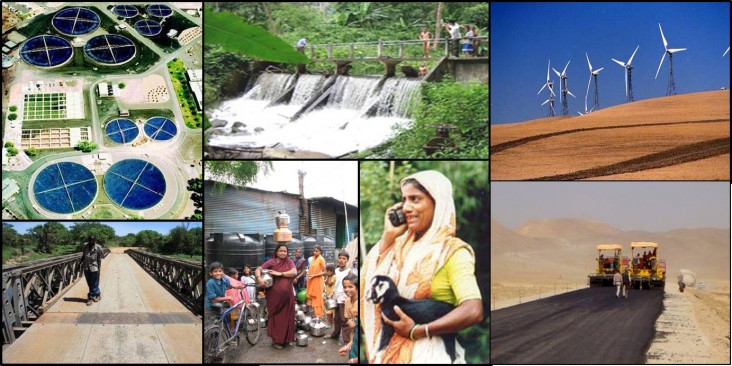- Who We Are
- Mission, Vision and Values
- Organization
- Leadership
- Office of the Administrator
- Bureaus
- Africa
- Asia
- Europe and Eurasia
- Latin America and the Caribbean
- Middle East
- Democracy, Conflict and Humanitarian Assistance
- Economic Growth, Education and Environment
- Office Of Economic Policy
- Office of Development Credit
- Office of Education
- Office of Energy & Infrastructure Programs
- Office of Forestry and Biodiversity
- Office of Gender Equality & Women’s Empowerment
- Office of Global Climate Change
- Office of Land and Urban
- Office of Local Sustainability
- Office of Private Capital and Microenterprise
- Office of Trade & Regulatory Reform
- Office of Water
- Food Security
- Global Health
- Legislative and Public Affairs
- Management
- Policy, Planning and Learning
- Foreign Assistance
- U.S. Global Development Lab
- Independent Offices
- Mission Directory
- Staff Directory
- Advisory Committee
- Board for International Food and Agricultural Development
- Mission Directors
- Coordinators
- Global Development Council
- USAID History
- Operational Policy (ADS)
- Transparency
- Resource Portal

Overview
Infrastructure is a critical foundation of inclusive, sustainable growth and is essential to achieving USAID’s development objectives across a wide range of sectors including health, economic growth, education, and the environment.
USAID’s approach to infrastructure improvements is more than just bricks and mortar. It involves establishing effective and sustainable service providers and institutions that can operate, maintain and renew facilities that serve as critical foundations for achieving broader development goals. The Agency’s approach to infrastructure also emphasizes identification and application of best practices, and learning based on evidence of effectiveness.
Energy Programs
USAID’s Energy programs focus on the following areas:
- Energy sector reconstruction in countries recovering from conflict and natural disasters;
- Increasing access to clean energy through expanded grid supply of renewable energy, and scaling of off-grid decentralized energy technologies and business models.
- Promoting enhanced energy security for sustained economic growth;
- Integration of improved energy services to advance agriculture, health, education, and democracy and governance programming.
The E&I Office supports the Agency’s energy programming. These programs emphasize several themes, including promoting energy sector reforms that are widely recognized as prerequisites to private investment, access and sustainability. The Energy Division also drives efforts to scale modern energy services by offering technical advice on strategic energy planning; competitive procurement for clean energy infrastructure; establishment of renewable energy zones; design and implementation of smart incentives for clean energy investments; and enhanced integration of renewables into national/regional power grids.
Launched in June 2012, the USAID managed partnership, Powering Agriculture: An Energy Grand Challenge for Development, is using just over $18 million is U.S. funds to leverage nearly $24 million in additional donor and private contributions to find clean energy solutions that will transform agriculture and empower farmers in the developing world. The E&I Office is also providing essential technical input to the Power Africa initiative, that is working to bring electricity to 60 million African homes and businesses and increasing installed generation capacity by 30,000 megawatts (MW) by 2030.
Engineering Programs
The E&I Office provides broad professional architect-engineer services, post-disaster reconstruction support and risk management of the USAID global construction portfolio with an estimated value of more than $2 billion per year. The Engineering Division supports programming across all sectors of infrastructure providing services to USAID missions and other Operating Units in three key areas: 1) Technical Assistance, 2) Policy Support and Risk Management; and 3) Communications and Knowledge Management.
Technical Assistance: E&I provides engineering, construction and infrastructure technical support directly to missions through virtual and TDY assistance provided by the 7 engineers and infrastructure technical staff in the Office. In addition, the Division manages the Architecture and Engineering IDIQ, providing access to small and large engineering service providers. Task orders under this IDIQ can support engineering design, construction procurement and construction supervision (quality assurance) among other tasks. In 2017, the Division plans to introduce a surge support mechanism to provide rapid technical assistance for reconstruction needs, forensic analysis, value engineering and other technical tasks.
Policy Support and Risk Management: E&I is the focal point for the Agency’s Construction Improvement Program to implement the recommendations of the USAID 2014 world-wide Construction Assessment. E&I guides the development and implementation of USAID construction policy and helps to ensure compliance through facilitating and monitoring construction risk screening for all new activities.
Communications and Knowledge Management: E&I also serves as the knowledge hub for USAID engineers and professionals working in the space as well as our beneficiaries and partners. E&I develops and delivers training programs for engineers and non-engineers on a range of infrastructure, engineering and construction topics. In addition, E&I supports databases, webinars and other platforms to organize and share innovation, best practice, case studies and lessons learned.







Comment
Make a general inquiry or suggest an improvement.